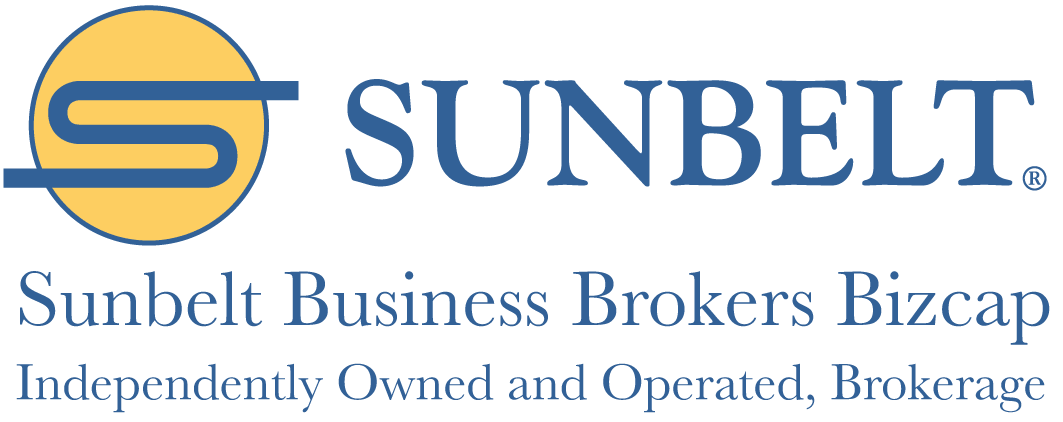
Expert Guide: How to Buy a Business in Ottawa with Confidence
When you are inquiring about how to buy business in tawa, it’s essential to ensure you’re investing in a business that fits your personal and financial goals while offering reliable, steady earnings. At our Sunbelt Business Brokers Ottawa are here to guide you step by step through the purchasing process, ensuring you make informed decisions that lead to success.

Your Complete Step-by-Step Guide to Buying the Right Business in Ottawa
Once you’ve made the decision to explore business ownership, it’s time to understand the process of buying a business that fits your needs. Whether it’s your first business or an expansion of your portfolio, it’s an exciting, life-changing process. Our proven approach and expert guidance will help you navigate every question and decision along the way.
Are you excited by the idea of owning a business in Ottawa? Does the thought of being your own boss and creating your own path sound appealing? If you’re ready to turn your ambitions into reality and achieve financial independence right here in Ottawa, buying a business could be your next big step.
It’s a Significant Decision. The decision to buy a business in Ottawa isn’t one to be taken lightly. It requires careful personal evaluation, strategic planning, and thorough consideration of a variety of factors—financial, legal, tax, lifestyle, and emotional. The process can be complex, but with the right preparation, it can lead to lasting success.
To help you get started, here are a few things to think about as you consider buying a business in Ottawa:
- Strategic, Personal, and Financial Planning:Before you begin, make sure you have a clear plan for your goals and finances.
- Soul Searching:Take the time to reflect on your goals. What do you want to achieve by owning a business in Ottawa?
- Impact on Life and Family:Consider how this decision will affect your lifestyle and family. Are you ready for the changes business ownership may bring?
- Entrepreneurial Sacrifices:Be honest with yourself about whether you’re prepared to make the sacrifices and take the risks needed to be a successful entrepreneur in Ottawa.
- Long-Term Passion and Risk Tolerance:Carefully assess your abilities, risk tolerance, and long-term passion for running a business.
Finding the right business in Ottawa that aligns with your skills, financial resources, and personal goals is the next step. Your previous experience, aspirations, and what you enjoy doing will help shape your ideal business. Sunbelt Business Brokers Ottawa has access to a wide range of opportunities to help you discover the best fit.
Understanding the process of buying a business is crucial to ensuring a smooth and successful transaction. Below is an outline of the key steps involved, but for more detailed guidance, you can read Insider Tips for Buying a Business in Canada on our corporate site.
- Initial Meeting and Confidentiality Agreement
When you first meet with your business broker, you will be asked to sign a confidentiality agreement. This step is essential because confidentiality is critical to protecting both the buyer and seller throughout the transaction.
- Identifying the Right Business Opportunity
In this phase, you’ll work closely with your broker to identify businesses that align with your goals, aspirations, resources, and skills. Together, you’ll discuss which opportunities are a good fit and select the businesses you’d like to explore further.
- Reviewing Business Information
Once you’ve identified a potential business, your broker will provide detailed information about it. It’s important to use this data to prepare questions ahead of your meeting with the business owner. This ensures you have a clear understanding of the business’s operations and financial health.
- Meeting the Business Owner
After reviewing the information provided, you’ll meet with the business owner. This is your opportunity to ask in-depth questions and assess whether this business fits your needs and expectations.
- Evaluating the Opportunity
Immediately following your meeting with the owner, it’s important to sit down with your broker and evaluate the business. Consider whether this is a business you’re willing to invest further time, energy, and resources into investigating.
- Sample Offer and Financial Review
If you decide to move forward, your broker will prepare a sample offer for your review. Along with the offer, you’ll receive detailed financial information about the business, including forward-looking projections. This will help you assess whether the business has the potential to meet your financial goals.
- Making a Conditional, Non-Binding Offer
Once you’re confident in the business, it’s time to act. There may be other buyers interested, so it’s essential to move forward promptly. With the help of your broker, you’ll develop a non-binding, highly contingent offer based on the information provided.
- Negotiating Terms with the Owner
The next step is to reach a set of terms that both you and the business owner can agree upon. At this stage, avoid spending time and money on legal and accounting advice—there’s no need for formal engagement yet, as the offer remains non-binding and the deposit is refundable. If terms cannot be agreed upon, you can walk away without significant expenses.
- Involving Financial and Legal Advisors
Once terms are agreed upon, your financial and legal advisers will step in to assist with the due diligence process and the drafting of the agreement of purchase and sale. Your broker can recommend professionals to help with this stage, ensuring the legal and financial aspects are thoroughly reviewed.
You’ve identified a business that aligns with your goals, and while no business is perfect, you’ve decided it’s time to make a move. You may not have all the information to feel 100% confident, but it’s important to act before conducting full due diligence.
Making an offer early, before investing time and money in the due diligence process, helps ensure that there’s a reasonable agreement in place on key aspects like price, terms, and closing conditions. This saves both parties from unnecessary efforts if the deal cannot progress.
Key Components of the Offer
A well-structured offer will include the following:
- Price and Terms: The offer clearly outlines the price you are willing to pay and any associated terms.
- Closing Date and Conditions: A proposed closing date is set, along with conditions and timelines that need to be met before (and sometimes after) the closing.
- Payment Details: The offer specifies how and when the purchase price will be paid, as well as any conditions tied to those payments.
- Seller’s Post-Closing Responsibilities: It’s important to establish expectations for the seller after the sale, such as providing training for the buyer or continuing employment for a transition period.
Conditional, Non-Binding Offer
Your offer will be conditional and non-binding, protecting you during the early stages. Your broker ensures that the offer is structured to cover all important factors, including:
- Transaction Structure: The offer is contingent upon structuring the deal and drafting an agreement of purchase and sale that both parties, along with their legal advisors, find acceptable.
- Financing Conditions: The offer is also conditional upon securing financing on terms that work for you.
- Due Diligence: Completion of due diligence—covering financial, operational, market, and legal aspects—is necessary to ensure that the business is a sound investment.
With these conditions in place, you can move forward confidently, knowing that you are protected throughout the process. Once the offer is accepted, due diligence will help confirm that the business is indeed the right fit for you.
When buying a business in Ottawa, one of the most crucial decisions you’ll face is whether to purchase the assets of the business or its shares. Each approach comes with its own set of advantages and risks, and understanding these distinctions is essential for making the right choice.
At Sunbelt Business Brokers Ottawa, we help you navigate this decision by thoroughly explaining both options and their implications for your specific situation.
- Asset Purchase: In an asset purchase, you acquire specific assets of the business, such as equipment, inventory, and intellectual property, while leaving behind any liabilities. This is often preferred by buyers, as it minimizes the risk of inheriting past liabilities, such as tax debts or legal claims. Additionally, asset purchases can offer tax benefits, like higher depreciation on certain assets.
- Share Purchase: In a share purchase, you take over the ownership of the company by acquiring its shares. This means you inherit the company as a whole, including both its assets and its liabilities. While this option is generally more favorable to sellers due to potential tax exemptions (such as the capital gains exemption in Canada), buyers need to carefully assess any hidden risks or liabilities
When buying a business, conducting due diligence is a critical step. This thorough analysis ensures that the business is viable and free from any hidden risks. The goal is to identify potential flaws, verify the accuracy of the information provided, and ensure that the business will meet your financial and operational expectations.
Your broker will provide a detailed due diligence plan and help coordinate the process. However, as the buyer, it’s your responsibility to ensure all aspects are thoroughly examined to your satisfaction.
You will likely need an accountant to review key financial details, such as cash flow, assets, liabilities, and tax filings. This ensures that the financial history and projections are accurate and that there are no hidden risks. Additionally, an experienced tax and transaction lawyer will guide you on the risks involved, review the business structure, and assess the ownership and transferability of intellectual property.
It’s essential to confirm that the business can generate sufficient cash flow to:
- Support your financial needs
- Service the debt required for the purchase
- Provide a return on your invested capital
If the business falls short in any of these areas, you’ll need to develop a plan for making necessary changes to ensure it meets your goals.
While the due diligence process can vary, it typically takes two to six weeks depending on the complexity of the business and the availability of documentation.
Once you’re satisfied that the business is the right fit, the final step is closing the deal. Your business broker and lawyer will work together to handle the legal and financial details. Your lawyer will draft the Agreement of Purchase and Sale, as well as the non-compete and non-solicit agreement that the seller will sign. They will also draft the training and transition agreement, define the terms of any seller financing, and verify the title of the assets. Throughout this process, your broker will work closely with your legal team to manage any issues that could cause misunderstandings or impact the closing. It’s essential to have a lawyer experienced in business transitions to ensure everything is handled smoothly.
During the closing phase, you’ll also need to finalize the financing for the purchase and confirm the assets and inventory of the business. If the business has any existing leases, you’ll assume responsibility for those as well. After the deal is closed, expect some post-closing adjustments approximately 45 days later. These adjustments usually involve invoices for services provided up to the closing date.
With everything finalized, you are now ready to take on the exciting role of business owner!
After the deal is done, post-closing adjustments and staff introductions are crucial steps in the transition. We recommend introducing yourself to the staff with the seller present to ensure a smooth handover and build positive relationships from the start.
Congratulations on purchasing your business! The first steps in your new role are vital. Learn from the previous owner, build connections with suppliers and clients, and familiarize yourself with the business’s operations. It’s important to avoid significant changes until you understand the reasons behind the current processes.
Do You Have Other Questions?
If you have more questions about buying a business, be sure to visit our Buyer FAQs where we address common queries such as:
- Why should I buy a business rather than start one?
- What is the real reason people go into business for themselves?
- How are businesses priced?
- What should I look for when buying a business?
- What does it take to be successful in business ownership?
- What happens when I find a business I want to buy?
- Why should I work with a business broker?
- Do I need an attorney to complete the purchase?

Are you interested in our Businesses for Sale?
If you’re ready to start your journey to business ownership, begin by exploring our latest listings or browsing our entire collection of businesses for sale. Find the opportunity that’s right for you today!

